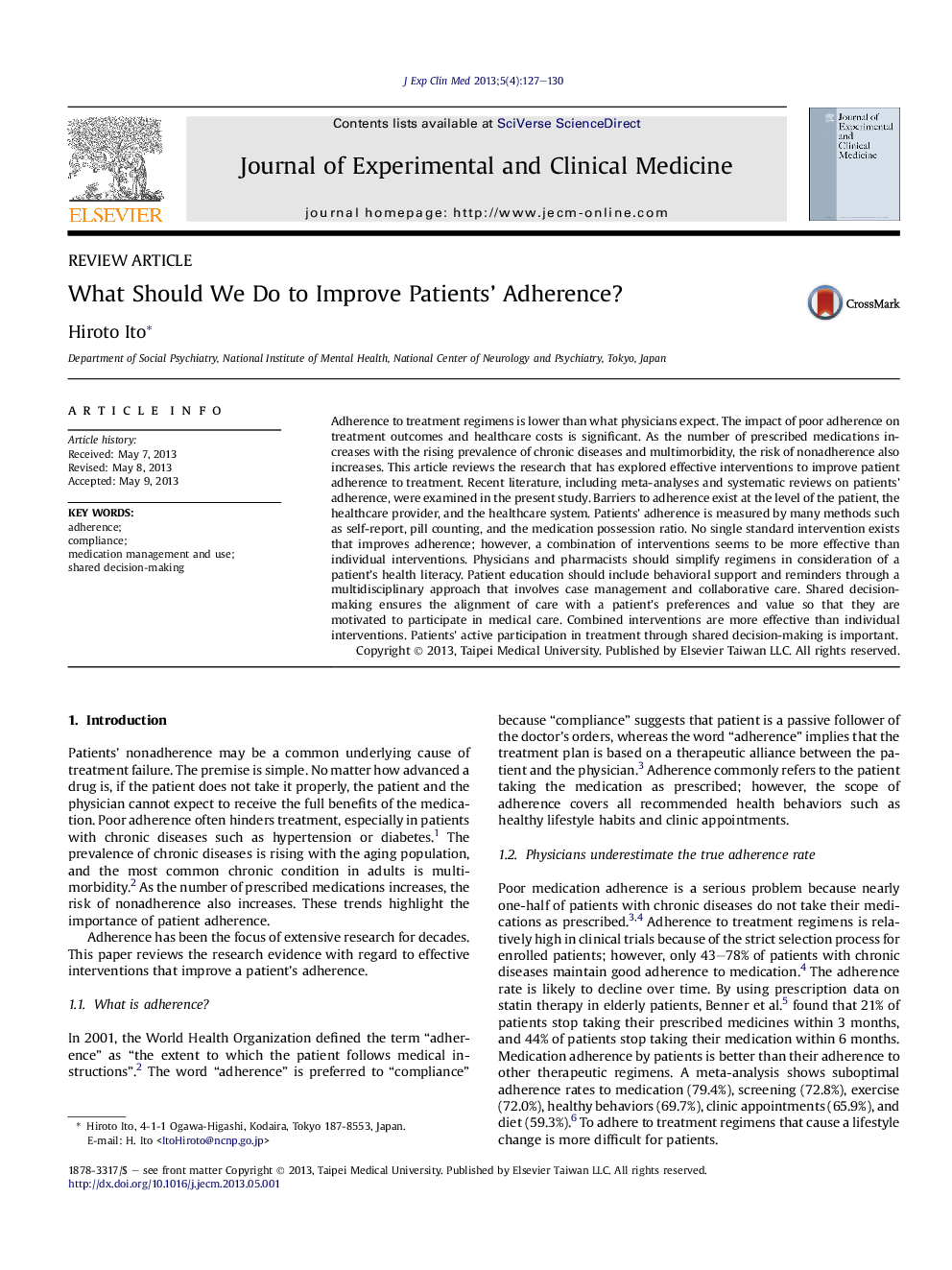| Article ID | Journal | Published Year | Pages | File Type |
|---|---|---|---|---|
| 3477778 | Journal of Experimental & Clinical Medicine | 2013 | 4 Pages |
Adherence to treatment regimens is lower than what physicians expect. The impact of poor adherence on treatment outcomes and healthcare costs is significant. As the number of prescribed medications increases with the rising prevalence of chronic diseases and multimorbidity, the risk of nonadherence also increases. This article reviews the research that has explored effective interventions to improve patient adherence to treatment. Recent literature, including meta-analyses and systematic reviews on patients’ adherence, were examined in the present study. Barriers to adherence exist at the level of the patient, the healthcare provider, and the healthcare system. Patients’ adherence is measured by many methods such as self-report, pill counting, and the medication possession ratio. No single standard intervention exists that improves adherence; however, a combination of interventions seems to be more effective than individual interventions. Physicians and pharmacists should simplify regimens in consideration of a patient’s health literacy. Patient education should include behavioral support and reminders through a multidisciplinary approach that involves case management and collaborative care. Shared decision-making ensures the alignment of care with a patient’s preferences and value so that they are motivated to participate in medical care. Combined interventions are more effective than individual interventions. Patients' active participation in treatment through shared decision-making is important.
